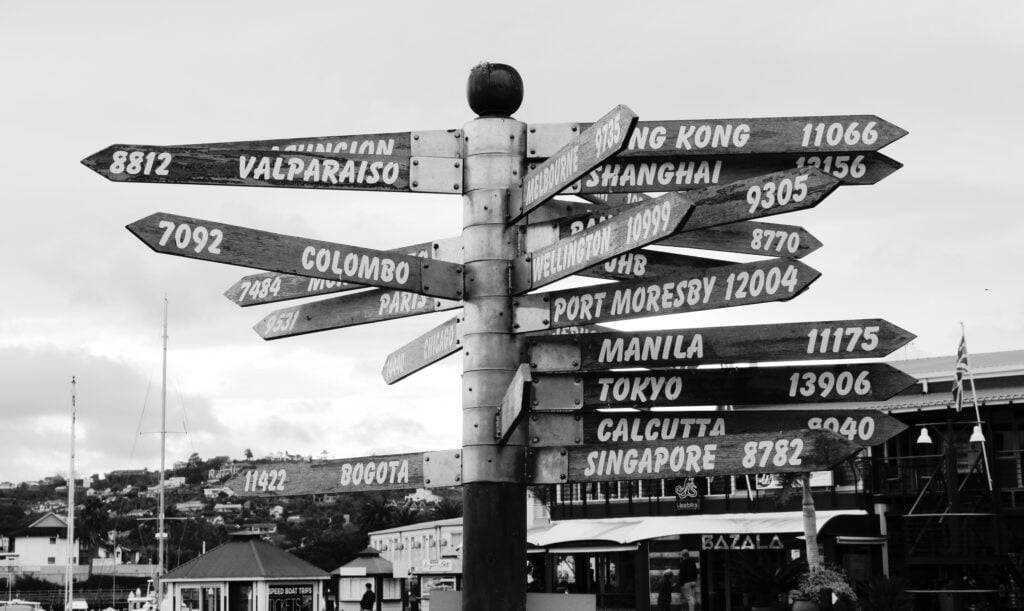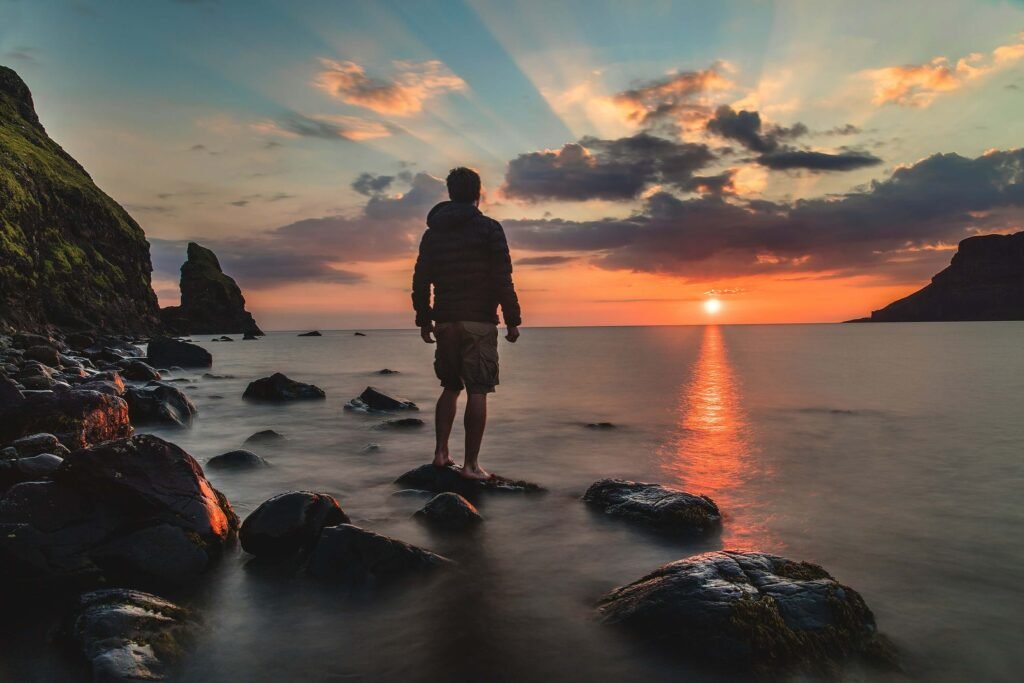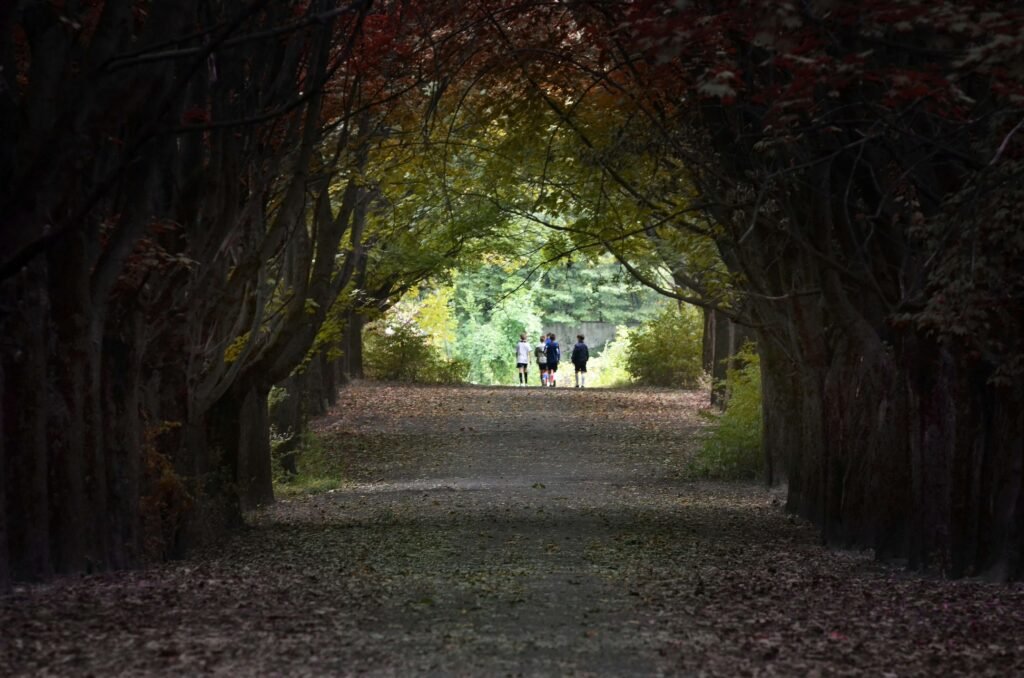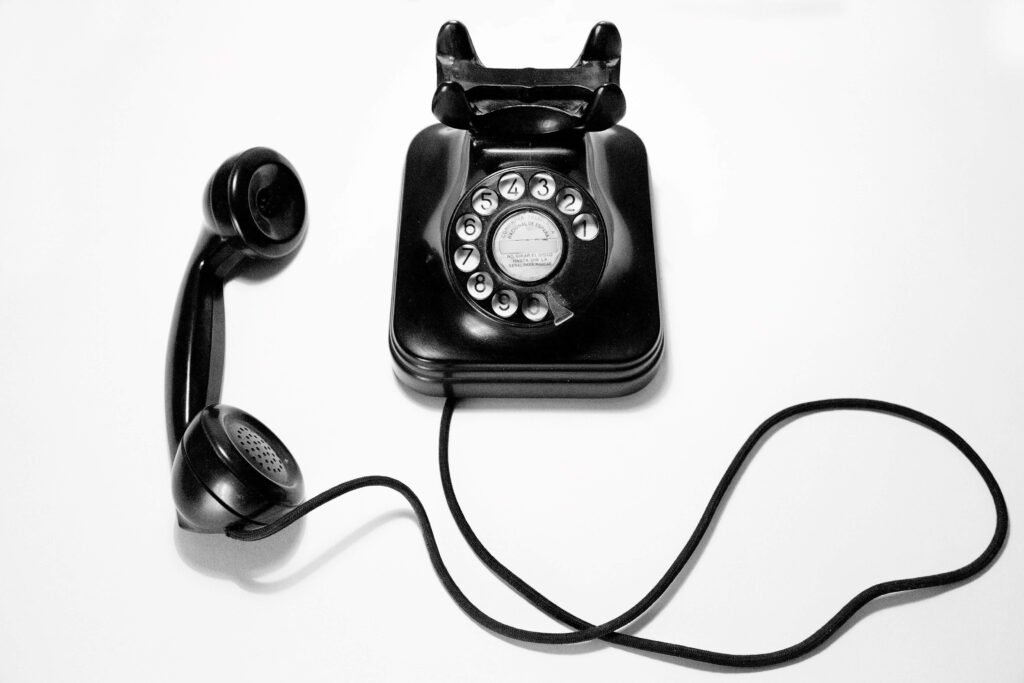Embracing the silver nomad lifestyle is a thrilling journey into the world of endless exploration and newfound freedom. As someone who’s made this transition, I can assure you it’s never too late to embark on this adventure. In this complete guide, we’ll cover everything from planning your travels and finding remote work to staying healthy on the road and connecting with fellow travelers. Whether you’re a seasoned wanderer or just starting out, get ready to discover the joys of being a silver nomad and making the most of this exciting chapter in life.
Table of Contents
What is Silver Nomad?
A silver nomad is someone, typically over the age of 50, who embraces a lifestyle of travel and exploration, often while working remotely. These adventurous individuals have decided to spend their retirement years, or even the years leading up to retirement, exploring new destinations and cultures. With advancements in technology, it’s easier than ever for silver nomads to stay connected and manage their professional or personal projects from anywhere in the world. This lifestyle offers a blend of adventure, flexibility, and the opportunity to continuously learn and experience new things well into one’s later years.
Is Nomad Lifestyle Right for You?

The digital nomad lifestyle can be an excellent fit for silver nomads, offering a unique blend of freedom, adventure, and flexibility. If you love traveling and experiencing new cultures, being a digital nomad allows you to live in various parts of the world for extended periods. This lifestyle provides the flexibility to choose your own schedule, balancing work and leisure, which is ideal if you prefer setting your own pace. Engaging with new environments keeps your mind active and sharp, as you’ll continuously learn from different cultures, cuisines, and people.
Technology makes it easier to stay in touch with family and friends while also allowing you to meet fellow travelers and build a global network of like-minded individuals. Financially, living in countries with a lower cost of living can stretch your retirement savings further, enabling a higher quality of life. However, consider the challenges such as ensuring access to good medical facilities and health insurance abroad, being adaptable to varying levels of comfort and occasional travel hiccups, and being comfortable with technology for managing remote work and staying connected. If these aspects excite you and you’re ready for an adventurous lifestyle, the digital nomad life could be a fantastic choice.
Pros of Being a Silver Nomad
- More free time and flexibility to travel and live abroad during retirement
- Chance to experience new cultures and have new adventures
- Potentially lower cost of living depending on destination
- Ability to live closer to family/friends who’ve moved away
- Feeling of independence and self-sufficiency
- Learning new skills and ways of living
- Meeting new people and making friends abroad
Potential Challenges to Consider
- Missing family and friends back home more acutely
- More difficulty learning languages as you age
- Healthcare issues harder to manage abroad, finding English-speaking doctors
- Potential loneliness and isolation in a foreign country
- Being far from grandchildren and missing key life events
- Learning to live with less physical comforts/amenities
- Technology challenges communicating across time zones
- Government bureaucracy around visas, healthcare, taxes
The silver nomad path isn’t for everyone but for adventurous retirees it can vastly expand your horizons. Take an honest self-assessment before committing long-term. Focus on countries with lower costs of living and strong expat communities. With proper planning, it may help make your retirement richer and fuller.
Choosing a Destination as a Silver Nomad

One of the most exciting parts of becoming a digital nomad is choosing which destination to live in first. However, mature digital nomads have a unique set of factors to consider when selecting a home base abroad.
Cost of Living
For those living on a fixed income, the cost of living in your chosen destination is likely a top concern. Southeast Asia and parts of Eastern Europe tend to be very affordable for basics like food, housing, and transportation. Locales like Chiang Mai, Thailand and Budapest, Hungary allow you to stretch your nest egg. Other spots in Portugal, Spain, and Italy can be easy on the wallet too. Research prices online and reach out to expats already living there.
Health Care
Reliable, quality healthcare is crucial for Silver Nomad. Find out what options are available for international residents in your target destination. In some spots, like Costa Rica, excellent private hospitals and clinics cater to expats. Elsewhere, public health care may be sufficient. Check on access to your prescriptions as well. Places like Mexico allow easy and cheap access to medications over the counter.
Climate and Comfort
Weather is another big factor. The humidity or arctic temperatures that were fine at 20 may be challenging after 50 or 60. Look for locations with comfortable year-round climates tailored to your needs. Coastal regions of Southern Europe, Hawaii, and high-altitude areas of Latin America all offer spring-like weather.
Top Destinations
For silver nomads seeking their next adventure, there’s a wealth of enticing destinations to explore. Whether you’re drawn to the cultural richness of Spain’s historic cities, the tranquil beaches of Thailand, or the vibrant streets of Mexico City, each destination offers its own unique charm and opportunities for discovery. Portugal beckons with its stunning coastline and welcoming communities, while Italy invites you to indulge in its world-renowned cuisine and timeless beauty.
Greece, Costa Rica, Vietnam, Croatia, and Ecuador round out the list, each offering a mix of natural wonders, cultural treasures, and affordable living options. No matter where your journey takes you, these top destinations promise unforgettable experiences and the opportunity to create lasting memories as you embrace the silver nomad lifestyle.
Earning Money Remotely
As a silver nomad, you’ll need to have remote income streams in place to fund your lifestyle abroad. Here are some of the most popular ways to earn money while traveling:
Starting an Online Business
The internet has opened up countless opportunities to start online businesses that can be run from anywhere in the world. Popular options include:

- Affiliate marketing – Earn commissions promoting other companies’ products. Great for those with blogs or websites.
- Dropshipping – Sell products shipped directly from the manufacturer to customers. Requires minimal upfront investment.
- Selling online courses or ebooks – Create educational content to sell on your own website. Leverage your skills and experience.
- Freelance services – Offer digital services like writing, design, programming, consulting, etc. Leverage skills from your career.
- Coaching & consulting – Provide personalized coaching or consulting over video chat. Great for established experts.
With a little creativity, there are many ways to monetize your knowledge, skills, and passions online. Focus on digital products or services to keep things location-independent.
Freelancing Opportunities
Freelancing has become extremely popular with digital nomads, as it allows you to work flexibly from anywhere. Good freelance skills to develop include:
- Writing & editing – Plenty of websites need writers and will pay for articles, blog posts, copywriting, proofreading, etc.
- Web development & design – Design websites or develop custom web apps and software as a freelancer.
- Virtual assistant – Provide administrative support and other tasks for clients.
- Tutor online – Teach languages, music, academic subjects, etc. via video chat platforms.
- Data entry & analysis – Offer data services like research, data processing, analytics, etc.
- Translation & interpretation – Translate documents or provide live interpretation services remotely.
Having an established skillset makes it easier to find remote freelance work. You can find clients through job boards, LinkedIn, and your own network.
Building Passive Income Streams
Passive income allows you to earn money from past efforts with little day-to-day involvement. Passive income sources to consider include:
- Rental properties – Hire a property manager and collect rental income even while traveling.
- Selling digital products – Music, photos, software, templates, etc. Can be resold over and over.
- Royalties & licensing – Get royalties from books, music, or patents. Or license your intellectual property.
- Affiliate marketing – Build an affiliate site once, then earn commissions indefinitely.
- Dropshipping – Have suppliers ship orders from your online store. Minimal daily effort needed.
- Investing – Earn returns from stocks, bonds, mutual funds, etc. Managed passively.
Building multiple streams of passive income can provide cash flow with minimal ongoing work, giving you more freedom.
Keeping Costs Low as a Silver Nomad
As a silver nomad in your mid-age or later years, keeping costs low can be crucial for making the lifestyle sustainable long-term. Here are some tips for reducing expenses and optimizing your budget:

- Live in more affordable destinations. Opt for locations with lower costs of living rather than expensive cities. Southeast Asia, Eastern Europe, and parts of Latin America tend to offer better value.
- Slow travel. Stay in each destination longer rather than constantly being on the move. This avoids the costs of frequent flights and transportation.
- Rent monthly accommodations. Locking in monthly rates for apartments or guesthouses is cheaper than paying nightly hotel rates. Consider house sitting or apartment swapping as well.
- Take advantage of senior travel discounts. Museums, transportation, and tours may offer reduced rates for seniors. Always ask about discounts.
- Cook your own meals. Preparing meals in a kitchen rather than eating out saves significantly. Farmers markets and grocery stores provide budget-friendly ingredients.
- Limit going out. Bars and restaurants quickly add up. Socialize over affordable local food and drink instead.
- Travel during off-season. Visiting destinations during their low season means lower rates on lodging and flights. The weather may be less ideal but costs plummet.
- Consider expat tax benefits. Some countries offer special tax incentives for retirees or digital nomads. Research locations with low income and capital gains tax rates.
- Optimize banking and money transfers. Using fee-free debit cards and accounts with free international ATM withdrawals saves on transaction costs. TransferWise offers affordable currency conversion and bank transfers.
With some careful planning and budget discipline, silver nomads of all ages can control expenses and make the lifestyle financially sustainable. A little frugality goes a long way.
Staying Healthy Abroad
One of the biggest concerns when becoming a silver nomad later in life is maintaining health and wellness far from home. Finding adequate health care, getting health insurance, eating well, and staying active take on increased importance. Here are some tips to stay healthy as a mature nomad:
Finding Health Care

- Research care options in your potential destinations. Look for hospitals, clinics, and doctors used to treating foreign patients.
- Consider medical tourism for bigger procedures – you can combine necessary care with your travels. Thailand, Mexico, and India are top destinations.
- Ask other digital nomads for recommendations on doctors, dentists, and specialists they’ve used. Online forums are helpful.
- In most countries, you can pay out of pocket for appointments at local clinics. Negotiate prices upfront.
- Telehealth appointments with doctors back home bridge the healthcare gap when abroad.
Health Insurance Considerations
- Medicare does not cover care outside the U.S. Look into travel health insurance and expat insurance plans.
- Consideratastrophic coverage plan paired with a health savings account to manage routine care.
- Short-term plans can work if you’re frequently mobile. Make sure to understand policy limitations.
- Know your coverage for emergency medical evacuation – this is crucial when far from home.
Diet and Exercise
- Adjusting to new cuisine may be challenging at first when traveling. Focus on fresh, minimally processed foods.
- Cook for yourself when possible. This helps control nutrition and food costs.
- Stay active through walking, hiking, swimming, yoga, or joining local fitness classes. Many activities are low cost.
- Combat sedentary time from remote work by building movement into your daily routine.
- Manage stress through regular exercise, meditation, or relaxation techniques – important for mental and physical health.
Avoiding Loneliness and Isolation
One of the biggest challenges of the silver nomad lifestyle after mid-age is combating loneliness and isolation. When you uproot your life and move abroad, you leave behind your usual social circles and community. This can take an emotional toll over time. However, there are ways to build a sense of community and avoid isolation as a mature digital nomad:
Join Expat Groups and Meetups
Seek out groups of expats, remote workers, travelers, and locals in your new destination. Attend meetups, join Facebook groups, use apps like Meetup.com to connect with like-minded people. Having a sense of community is key.
Co-working Spaces and Shared Offices
Co-working with other location-independent professionals is a great way to make new friends and contacts. Shared office spaces create natural opportunities for bonding and collaboration.

Participate in Local Activities
Immerse yourself in your new home by engaging in local culture, classes, sports leagues, volunteering, tours, and more. Getting involved will help you meet people and feel connected.
Develop Routines and Habits
Foster a sense of community by regularly frequenting the same coffee shop, gym, park, bar, restaurant. Becoming a “regular” somewhere can lead to relationships.
Travel with Friends or Family
If possible, plan meetups with loved ones during your travels. Even short visits from familiar faces can curb isolation.
Be Proactive in Reaching Out
Don’t wait for others to come to you. Introduce yourself to fellow nomads and locals, strike up conversations, and make an effort to expand your social circle.
Leverage Social Media and Digital Tools
Use Facebook, Tinder, CouchSurfing, Airbnb Social, and other digital platforms to connect with potential friends. Video chat with loved ones back home.
Making an effort to engage with others and build community is crucial to avoiding the pitfalls of isolation as a mature digital nomad. Human connection will enrich your experience exponentially.
Travel Logistics
One of the most important aspects of becoming a silver nomad is figuring out the logistics of traveling and living abroad long-term. This involves considerations around visas, housing, transportation, and more.
Long-Term Housing Options

- Short-term rentals (Airbnb, VRBO, etc): These give flexibility to stay in one place from 1 week to 1 month typically. Good for exploring different areas.
- Monthly rentals: Many platforms like Airbnb offer monthly rates that give a discount over the daily rate. Allows you to settle in a bit longer.
- Roommate situations: Sharing an apartment with other nomads can cut costs significantly. Check roommate boards specific to digital nomads.
- House sitting: Take care of a home and pets in exchange for free accommodation. Great way to live like a local. Sites like TrustedHousesitters connect homeowners and house sitters.
- Co-living spaces: These communal living spaces designed specifically for remote workers provide housing, community, and amenities. Great for combatting isolation.
Visa Requirements
- Tourist visa: Allows you to stay in a country for less than 90 days typically. Easy to get but limits your long-term options.
- Digital nomad visa: Some countries like Croatia, Thailand, Costa Rica offer visas just for remote workers. Allows you to stay long-term without residency.
- Residency visa: To stay in a country long-term (1 year+), you’ll likely need to apply for residency. Requirements vary greatly depending on country.
- Multiple entry visas: No single visa may cover your whole trip. Research requirements to move between countries or regions.
Transportation
- Flying: Use low-cost carriers to hop between continents and countries easily. Pack light and be flexible on timing.
- Trains: Great way to travel between cities and countries in Europe and Asia. Comfortable and often affordable.
- Ride sharing: Apps like BlaBlaCar connect drivers and passengers heading the same way. Saves money over other transport.
- Buying a car: In some regions, it’s cheaper to buy and resell a used car than rely on public transport.
- Local transportation: Walking, buses, metro, tuk-tuks, etc can carry you affordably within cities.
Practical Matters
Managing the logistics of daily life can be challenging when you are a silver nomad, especially if you are new to the lifestyle. However, with some preparation and know-how, you can handle practical matters smoothly.
Banking Remotely
- Choose a bank that has international presence and partner ATMs available in your destination countries. Big multinational banks are a safe bet.
- Sign up for a credit card with no foreign transaction fees. This avoids costly charges every time you use your card abroad.
- Consider opening a bank account in your base country. This gives you easier access to branches and customer service in a familiar location.
- Look into fintech challenger banks designed for global travelers, with intuitive apps and free international transfers.

Digital Mail Forwarding
- Use a mail scanning and forwarding service to get your mail anytime, anywhere. They provide U.S. addresses and scan envelopes so you know what arrives.
- For packages, addresses like UPS Access Point can hold your parcels until you are ready to have them shipped abroad.
- Go paperless by opting for online statements, subscriptions, and communications as much as possible.
Reliable Phone Options
- Smartphones with dual SIM slots allow you to use local SIM cards at each destination.
- Alternatively, use an international cell phone plan or eSIM for seamless service while traveling.
- VoIP services like Skype allow you to call and text U.S. numbers over the internet.
- Consider a mobile hotspot device with international roaming to ensure internet access.
- A VPN encrypts your data and allows you to access streaming content from home.
Key Digital Tools
- Apps like Evernote, Google Drive, and Dropbox keep your documents accessible from anywhere.
- Password managers like LastPass provide secure access to all your accounts.
- Communication tools like Slack and Zoom enable you to stay in touch and collaborate remotely.
- Project management platforms like Trello or Asana help you manage work and share with clients.
- Remote work hubs like Selina provide desk space, fast wifi, and community.
With the right preparation, you can smoothly manage practical matters as a silver nomad. The essentials are finding mobile banking and communication options, forwarding mail reliably, and utilizing key digital tools. With these logistics figured out, you can focus on enjoying your nomadic lifestyle.
Safety Considerations
As a silver digital nomad, it’s important to keep safety top of mind when traveling and living abroad long-term. Here are some tips:

Safe Accommodations
- Opt for well-reviewed hotels or Airbnbs in safe neighborhoods rather than ultra-cheap options in dicey areas. Check reviews and location thoroughly.
- In hostels, get a private room rather than a shared dorm if possible. Store valuables in lockers.
- If staying in an Airbnb, choose a superhost with great reviews. Make sure the place looks secure.
Avoiding Scams
- Research common scams at your destination. Know what to watch out for.
- Be wary of people approaching you offering deals or “help.” Politely decline.
- Only take registered taxis and know when you’re getting overcharged. Agree on fares upfront.
- Be careful about WiFi hotspots and ATMs that could steal financial information.
Emergency Planning
- Know how to contact emergency services and have basic medical terms translated.
- Make copies of important documents and keep in a safe second location.
- Have an emergency credit card and extra cash stored securely.
- Arrange a check-in system with a trusted contact back home.
- Know where the nearest police station, hospital and embassy/consulate are.
- Consider travel insurance in case you need medical evacuation.
With vigilance and preparation, mature digital nomads can minimize safety risks and focus on enjoying their overseas adventures.
Making It Work for the Long Term

The digital nomad lifestyle offers freedom and adventure, but it’s important to keep in mind that it may not be sustainable forever. As you get older, you may find you need more stability and community. Here are some tips for making it work long-term:
- Develop sustainable habits. The excitement of constant travel can lead to burnout. Make sure to schedule regular times for rest, reflection, and creating routines. Maintain healthy habits around eating, sleeping, and exercise.
- Adapt over time. Your needs and priorities will likely shift. What worked at the beginning may not still serve you. Re-evaluate regularly and make changes to your lifestyle if needed. Reduce travel, settle in one place for longer, or find a home base.
- Know when to settle down. There may come a point where you feel ready to establish roots again. That’s okay! Recognize when the nomad life no longer brings you joy. Make plans to transition to a new phase, like renting an apartment or buying property.
- Build community. Get involved locally, make friends, and create your “tribe” abroad. Having meaningful connections will enrich your experience wherever you are.
- Consider retirement realities. Develop a financial plan that accounts for healthcare, taxes, and savings. Look into visas, residency options, and retirement havens. Think about where you want to settle when you stop nomading.
With intention and flexibility, you can thrive as a silver nomad into your retirement years. Recognize when it’s time for a change, but don’t stop adventuring and exploring the world. There are so many ways to structure a purposeful life of travel.
Conclusion
As you conclude your journey through our Complete Guide To Become a Silver Nomad, remember that age is no barrier to adventure. Embracing this lifestyle opens a world of possibilities, from exploring vibrant cities to relaxing on tranquil beaches. By combining practical advice with inspiration from top destinations like Spain, Thailand, and Mexico City, you’re equipped to navigate the challenges and joys of life on the road. So pack your bags, follow your wanderlust, and embark on the journey of a lifetime as a silver nomad. Adventure awaits!
Plan your trip with ease by visiting our Accommodation and Transportation pages. Discover unbeatable deals for seamless and unforgettable adventures!
